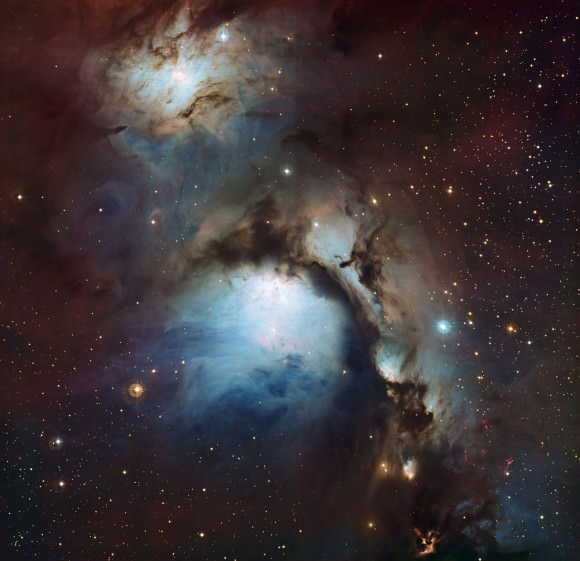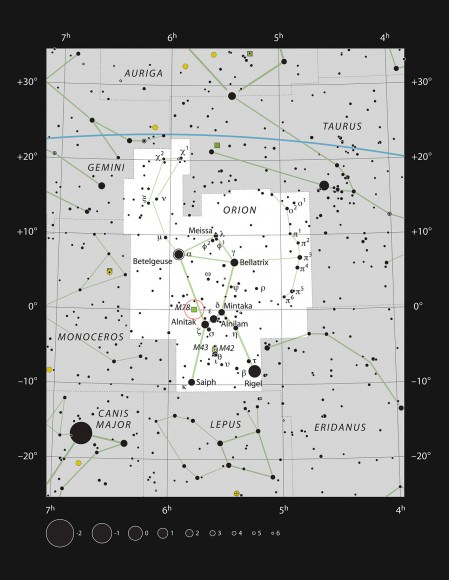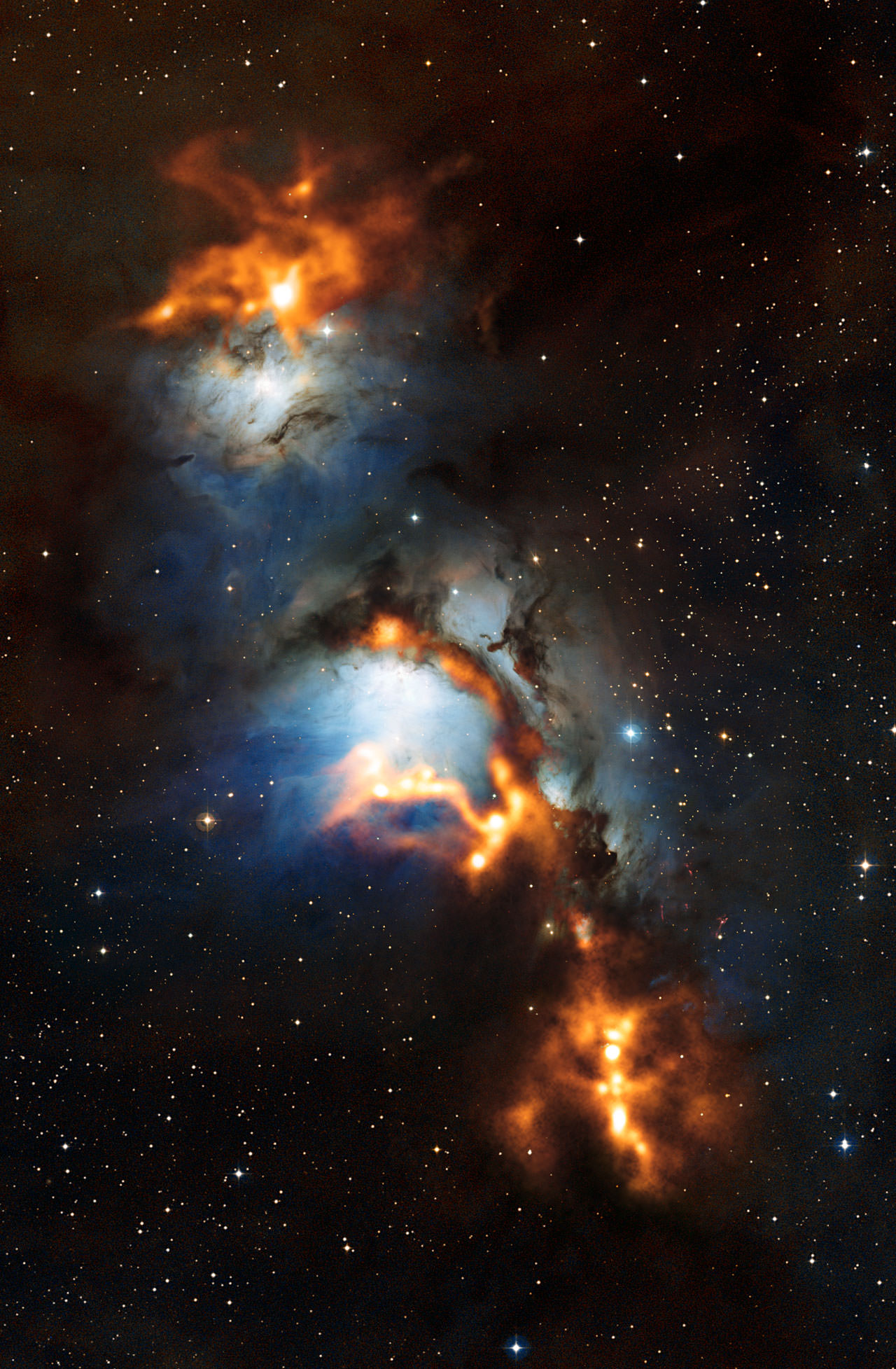[/caption]
On Earth, dust can be pretty mundane. But in space, dust can be beautiful, especially when the dust reflects starlight – and even more so when we have the chance to see the reflections in different wavelengths. Here in NGC 2068, also called Messier 78, this dazzling submillimetre-wavelength view from the Atacama Pathfinder Experiment (APEX) telescope Dust shows the glow of interstellar dust grains, pointing the way to where new stars are being formed.
This reflection nebula lies just to the north of Orion’s Belt. When seen in visible light glimmers in a pale blue glow of starlight, but much of the light is blocked by the dust. In this image, the APEX observations are overlaid on the visible-light image in orange. APEX’s view reveals the gentle glow of dense cold clumps of dust, some of which are even colder than -250 C.

Compare the new image with this earlier, visible light image of M78.
One filament seen by APEX appears in visible light as a dark lane of dust cutting across Messier 78. This tells us that the dense dust lies in front of the reflection nebula, blocking its bluish light. Another prominent region of glowing dust seen by APEX overlaps with the visible light from Messier 78 at its lower edge. The lack of a corresponding dark dust lane in the visible light image tells us that this dense region of dust must lie behind the reflection nebula.
Observations of the gas in these clouds reveal gas flowing at high velocity out of some of the dense clumps. These outflows are ejected from young stars while the star is still forming from the surrounding cloud. Their presence is therefore evidence that these clumps are actively forming stars.
At the top of the image is another reflection nebula, NGC 2071. While the lower regions in this image contain only low-mass young stars, NGC 2071 contains a more massive young star with an estimated mass five times that of the Sun, located in the brightest peak seen in the APEX observations.

Source: ESO

